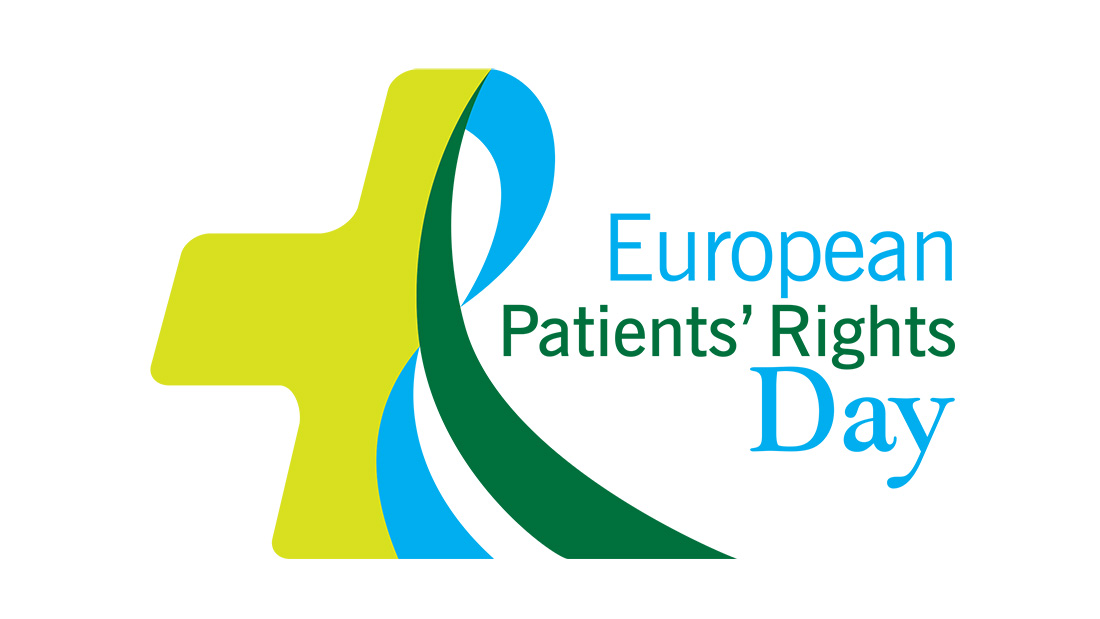10 Concrete recommendations towards a European Health Union
Preamble
- COVID-19 has threatened all health systems and their sustainability as well as the social stability of a country during an emergency, but it has especially affected non-COVID-19 patients worldwide, challenging their right to health and continuity of care.
- Across the world, patients with cancer or with chronic diseases were left behind, and this will have public health consequences, counting not only the deaths caused by COVID-19, but also the number of people who died prematurely because they did not have a chance to access the care that they needed.
- For European citizens of 9 EU countries, health risks are a main concern. During the COVID-19 health emergency, health services were totally and "heroically" focused on stemming the epidemic, but which at the same time revealed the limits that existed before the emergency. “Ordinary” patients have struggled with practical issues of postponing or forgoing a wide variety of services, ranging from emergency treatment of acute conditions to routine check-ups, recommended cancer screenings, creating a sense of abandonment and uncertainty.
- According to data collected by the World Health Organization, UNICEF, Gavi, etc., provision of routine immunization services was substantially hindered in at least 68 countries with a great variation in how the pandemic disrupted access to immunisation services even within the same regional territory; very different protocols are in place regarding infection prevention policies, both in facilitating access to vaccines and in conducting screenings.
It is not acceptable to respond to the immediate needs of citizens and patients facing the COVID-19 pandemic simply by closing services. Instead, alternative organizational solutions are needed to guarantee continuity and quality of care as well as a resilient health workforce.
Some data of the burden
Evidence collected during the crisis show that COVID-19 has had a significant impact on non-communicable diseases (NCDs):
- Many countries postponed elective surgery to free up human resources and hospital beds. This was the case, for example, in Germany and Portugal for all non-urgent elective surgeries (OECD, 2020). In France, the Académies de médecine et de chirurgie estimated around 1.1 million non-urgent surgical acts were postponed during the pandemic (Santi and Pineau, 2020).
- There have also been fewer visits to emergency departments: In Germany, the COVID-19 pandemic was associated with a significant decrease in all-cause admissions (30% lower than for the same period in 2019) and admissions due to cardiovascular events in the emergency department (41% lower) (Schwarz et al., 2020).
- There has been an approximately 40 per cent drop in cancer diagnoses (De Vincentiis, L., Carr A., Mariani, M., Ferrara, G., 2020): In Italy, an estimated 1.4 million fewer screening exams were performed during the first five months of 2020 (Italian National Oncology Association, 2020) and in Spain (Madrid) outpatient visits in oncology departments decreased by 23% between 9 March and 13 April 2020 (Manso, De Velasco and Paz-Ares, 2020).
- During the pandemic outbreak, and in particular during the confinement period, far fewer patients than usual have called for help or visited hospital emergency units with heart attacks and strokes: the European Society of Cardiology early in July 2020 denounced that the number of heart attack patients seeking urgent hospital care has dropped by more than 50% during the COVID-19 outbreak.
A situation that jeopardizes 20 years of prevention
Civic society & Patients 10 Recommendations:
Together, we are launching an appeal to the European Union, national and regional institutions, and decision-makers to work together to find concrete solutions that ensure prompt care of COVID-19 positive patients to effectively manage the pandemic, without doing it at the expense of continuity of care for all other patients. In this context, we would like to propose 10 concrete recommendations to immediately integrate the lessons learned from the pandemics and to be urgently considered to ensure continuity of care for patients suffering from other diseases than COVID-19:
- Monitor COVID-19 impact on non-COVID-19 patients: it is crucial that authorities continuously monitor the situation at European and national level on the impact of the pandemic on non-COVID-19 patients and take appropriate actions in close cooperation with patient communities. Joint Communication efforts by healthcare sectors and authorities across Europe are key and need to be synchronized. It is essential to share best practices and to raise awareness as well as to encourage patients and citizens to take care of their health during COVID-19 times.
- Urgently secure safe access to diagnostic, immunization, screening and treatments: patients must continue to have access to prevention, diagnostic, screenings, and other treatments with no fear, even during a pandemic. It is crucial for authorities to look at alternative options to guarantee those basic rights of the people, for example by simplifying as much as possible the procedures with which chronic and rare disease patients obtain drugs, usually distributed in public facilities and hospitals, and favoring and facilitating home delivery of drugs and health assistance, depending on the functioning of the national health system. In particular, building resilient health and immunisation systems and improving access to routine and new vaccinations becomes essential in the context of COVID-19. To achieve this objective, all possible efforts should be made to affirm the culture of the life-course immunization, and to engage all healthcare providers as each of the actors in the vaccines ecosystem contributes to strengthening the resilience of the immunisation system.
- Secure well-resourced healthcare systems post COVID-19: healthcare systems must be well-resourced to face health crisis situations leaving no one behind. In this context, it will be crucial to abandon the idea of hospitals as exclusive treatment centers, and to ensure assistance and patient care also in their households, also with the aid of advanced technologies, in order to reinforce primary and continuity care outside hospitals. At the same time, hospitals should help reduce the impact of the pandemic on non-COVID-19 patients in the future by welcoming patients back into healthcare settings. For instance, hospital should ensure separation of COVID-19 and non-COVID-19 areas.
- Support the Digital Healthcare transition: for the future, it is essential to simplify procedures and facilitate access to medical services in order to achieve a significant shift in care delivery by fostering digital technologies and offering digital medical services including e-appointments and e-prescriptions. It is important to favour prescriptions by email, as well as telemedicine, by investing in homogeneous IT platforms between hospitals and local centers, aimed at ensuring continuity of care - both for checks and consultations - and the management of patients at home. It is important to also look at ways to increase training for patients and healthcare professionals on the digitalization of healthcare.
- Affirm a life-course approach for chronic disease prevention: NCDs threaten progress towards the 2030 Agenda for Sustainable Development, which aims at reducing premature deaths from NCDs by one-third by 2030. A life-course perspective enables the identification of a high-risk phenotype and markers of risk early, supporting current efforts for primary prevention of NCDs by providing timely interventions in early life.
- Strengthen a ‘One Health approach’ to prevent future pandemics: NCDs, also known as chronic diseases, tend to be of long duration and are the result of a combination of genetic, physiological, environmental and behavioral factors. We can only prevent future pandemics through an integrated ‘One Health approach’ to public health, animal health and the environment we share. It is time that the concept of One Health – where multiple sectors communicate and work together to achieve better public health outcomes – is translated also into local-level systems.
- Develop a Manifesto for the rights of patients living with multi co-morbidity: Patients with multi co-morbidity have complex health needs but, due to the current traditional disease-oriented approach, they face a highly fragmented form of care that leads to inefficient, ineffective, and possibly harmful clinical interventions. This situation increases the risk of negative outcomes, and it is no longer acceptable: a joint effort with the involvement of the Institutions in favor of multi-disciplinary healthcare professionals’ (HCPs) teams is needed as well as clear heath pathways.
- “Follow the Money” to monitor together the funds of the Recovery Plan: we want the tools to monitor the funds from the National Recovery and Resilience Plan (PNRR) that each European country is receiving. We are talking of over EUR 672,5 billion fund approved, an investment in our future that we cannot make wrongly. In line with the provisions of the regulation for the Next Generation EU fund, we request a public and open tool to track financial data linked to the National Recovery and Resilience Plan (PNRR), an open government platform that enhances transparency and the monitoring of funds allocation.
- Engage European citizens to improve the health system: we want to be heard because, as in any reconstruction, the involvement of a large number of active and aware social and civic actors is essential. The WHO stresses the “Community and civil society engagement” as a pillar of its “Global Action Plan for Healthy Lives and Well-being for All”. Indeed, it is necessary to guarantee a leading role to the people, the communities, intermediate bodies such as Patients' Advocacy groups (PAGs), citizens organizations involved in healthcare issues and, more generally, all actors that promote health as a common good. From their testimonies during the pandemic, it emerges the great reforming force of civic organizations, capable of responding promptly to new needs by managing services, building alliances, quickly signaling necessary regulatory or procedural changes, mobilizing resources (both human and economic), innovating their operating mode, and introducing and promoting practices from which it will not be necessary to go back once the health emergency is over.
- “Health for all EU citizens” must be placed at the heart of the Conference on the Future of Europe: Beyond the emergency setting in which we have been living in recent months, the public health condition and its ongoing reform towards a real EU Health Union can only be addressed in a pan-European coordinated way, creating synergies between institutions at all levels, operators and citizens/patients. Only in this way we will be able to ensure sustainability, predictability, reduced health inequalities, and guarantee access to care to all patients. In the framework of the Conference on the Future of Europe as well as the Global Health Summit 2021, we urge authorities at EU and national level to prioritize health with the relevant resources needed, as well as to set up a dialogue at national level with all relevant stakeholders to address current issues of non-COVID-19 patients and implement concrete solutions.
Health is more than being COVID-19 free and this situation needs immediate actions
Total supporting stakeholders: 50
|
Italy |
Cittadinanzattiva/Active Citizenship Network |
 |
|
EU |
International Council of The Patient Ombudsman |
 |
|
EU |
International Alliance of Patients Organisations IAPO |
 |
|
EU |
European Federation of Crohn's and Ulcerative Colitis Associations - EFCCA |
 |
| EU | European Society of Radiology’s Patient Advisory Group (ESR-PAG) |  |
|
EU |
Dystonia Europe |
 |
| EU | European Heart Network |  |
|
EU |
ThinkYoung |
 |
|
EU |
Stroke Alliance for Europe |
 |
|
EU |
UEHP |
 |
|
EU |
European Federation of Nurses Associations |
 |
| EU | ADHD-Europe |  |
| EU | TEDDY Network - European Network of Excellence for Paediatric Research |  |
|
Albania |
"Together for Life" |
 |
|
Austria |
Lower Austrian Patient and Nursing Advocacy |
 |
|
Bulgaria |
Bulgarian Association for Patients' Defence (BAPD) |
 |
|
Bulgaria |
Alliance of Transplanted and Operated ATO "Future for All" |
 |
|
Bulgaria |
Association of Reproductive Health, Pregnancy and Childcare "Smile" |
 |
|
Bulgaria |
Association of Patients with Cardiovascular Diseases |
 |
|
Bulgaria |
Patients' Organizations With you |
 |
|
Croatia |
Croatian Association for Patients' Rights |
 |
| Cyprus | Thalassaemia International Federation |  |
| France | Indecosa |  |
|
Hungary |
VÉDEM, Civilians for Vaccination Association |
 |
|
Ireland |
Irish Patients' Association |
 |
| Italy | Federation of Italian Associations for Anticoagulated Patients (Feder-A.I.P.A.) |  |
|
Lithuania |
Council Of Representatives Of Patients Organisations Of Lithuania |
 |
| Malta | Association for Consumer Rights (ACR) |  |
|
Malta |
Malta Health Network |
 |
| Malta | National Patients' Organisation | 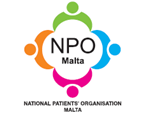 |
|
Malta |
Europa Donna Malta |
 |
|
Netherlands |
EPECS Foundation |
 |
|
Poland |
WE Patients Foundation |
 |
|
Poland |
Institute of Patients’ Rights and Health Education |
 |
| Portugal | ANSIC - AssociaçãoNacional de Síndrome de Intestino Curto |  |
| Portugal | Associação de Doentes de DorCrónica dos Açores (ADDCA) |  |
| Portugal | Associação MOG Movimento Cancro do Ovário e outros Cancros Ginecológicos | 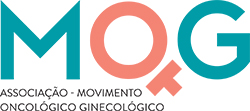 |
| Portugal | APN - Portuguese Association of Neuromuscular | 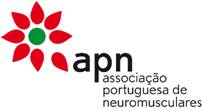 |
|
Portugal |
The Portuguese Multiple Sclerosis Society |
 |
| Slovenia | ZDRUŽENJE ZA PRAVIČNOST IN NADZOR / ASSOCIATION FOR JUSTICE AND CONTROL |  |
| Slovenia | SIBAHE - SLOVENSKA BANKA HRANE / SIBAHE - SLOVENIAN FOODBANK |  |
| Slovenia | DRUŠTVO KULTLAB CELJE/ KULTLAB CELJE SOCIETY |  |
| Spain | ASPERGA - ASOCIACION GALEGA DE ASPERGER | 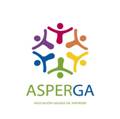 |
|
Spain |
Asociacion Española Contra La Meningitis |
 |
|
Spain |
Foro Español De Pacientes |
 |
|
Spain |
Plataforma de Organizaciones de Pacientes |
 |
|
Switzerland |
IAPO Patients for Patient Safety Observatory |
 |
| UK | Breast Density Matters UK | 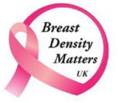 |
|
UK |
Pelvic Pain Support Network |
 |
|
UK |
Excellence in Pediatrics Institute |
 |
Disclaimer: the document has been produced in the framework of the XV European Patients’ Rights Day on May 2021

